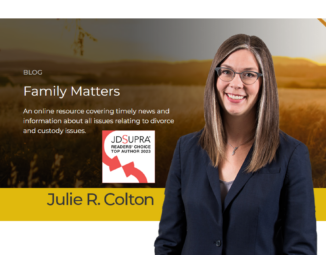Adoption of a child is a legal process involving the voluntary or involuntary termination of the rights and duties of the natural parents and the assumption of those rights and duties by the adopting parents. It’s a flexible, innovative legal way to create a family. Along with infant adoption, there are countless variations, such as public adoption with foster-to-adopt, grandparent/kinship adoption, stepparent adoption, and adult adoption.
Any adoption is also potentially legally complex, emotionally and socially challenging, and embedded in an ever-changing set of laws, regulations, and requirements that can have repercussions for years. Clients often come to us worried whether their adoptions will actually go through or if the biological parent giving up their parental rights will contest the adoption. The attorneys of Obermayer’s Adoption practice group are experienced in helping families of all kinds navigate the adoption process and emerge on the other side with what they’ve always sought: a family. We serve clients in New Jersey, Pennsylvania, Delaware, Connecticut, and New York.
We counsel families of all kinds, including LGBTQ parents-to-be. Despite enormous social change, these clients still can face special challenges in the adoption process. The Obermayer Adoption practice has years of experience in both anticipating and meeting their unique needs and helping navigate the course of adoption smoothly.
In the United States, interstate adoption is governed by the Interstate Compact on the Placement of Children (ICPC), an agreement between all fifty states, Washington, D.C., and the U.S. Virgin Islands that governs the movement and placement of children in adoption proceedings. The ICPC includes detailed requirements for providing information about the child’s social, medical, and educational history and the current status of any court case involving the child. It also includes requirements for information about the person who is being considered for placement of the child and is the foundation of the legally required screening of potential adopting families. The process is exhaustive, highly regulated, and mandatory for interstate adoptions in the United States.
Many of the same complexities apply to adoptions taking place within a state. Procedures regarding in-state adoption are governed by the Adoption Act and the Orphans’ Court Rules.
These include specialized situations such as infant in-state placements, independent adoptions, agency adoptions, special needs subsidies, termination of parental rights, finalization of adoptions, post-adoption contact agreements, stepparent adoption, international adoption, and refinalization. Just as with interstate adoptions, in-state adoptive parents are also required to participate in an exhaustive information-gathering, review, screening, and approval process.
Obermayer’s adoption team is experienced in the management of the entire procedure and has guided hundreds of families through it. From assembling the necessary information to communicating with the social service agencies involved, we ensure that the long, arduous bureaucratic road adoption demands is traversed steadily and correctly, and adoptive parents arrive at their destination.
Of course, there is much more to adoption than legalities and regulation. We strive to bring sensitivity, compassion, and judgment to our adoption practice. We are legal professionals, but we are also human beings guiding clients through some of the most important, emotionally demanding decisions of their lives. More prosaically, we also assist clients in addressing and planning for some of the logistical questions a potential adoption invokes: “What are my options?”, “Should I work with an adoption agency?”, “What would my adoption look like?”, and many more. More than legal advisers, we are also counselors and guides to an unfamiliar process that touches every facet of a client’s life.
We endeavor to work with clients early, long before the actual adoption process has begun, to assist them in sorting through the myriad of available options and devising a plan that will work for their unique situation. This approach minimizes stress and conflict, usually prevents surprises, and enables the adopting family to exert as much control as possible over the timing, cost, and outcome of their adoption.
Our job as adoption attorneys is to ensure that our clients are fully informed, and that, ultimately, the process works for them, and not against them. We strive to see to it that there are no surprises, that our clients make what are supremely important decisions knowledgeably and appropriately, and most of all, that at the conclusion of the process, another family – particularly its newest member – is off to the best possible start.
Awards Won*
*Click here for a description of the standard or methodology on which the awards and honors are based. No aspect of this advertisement is approved by the Supreme Court of New Jersey.


























